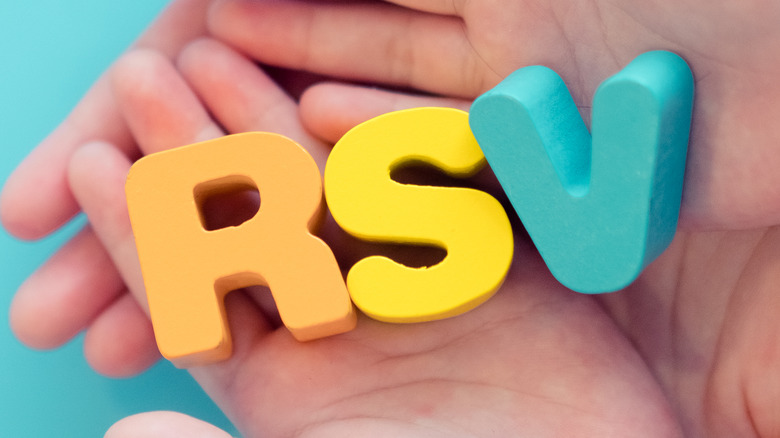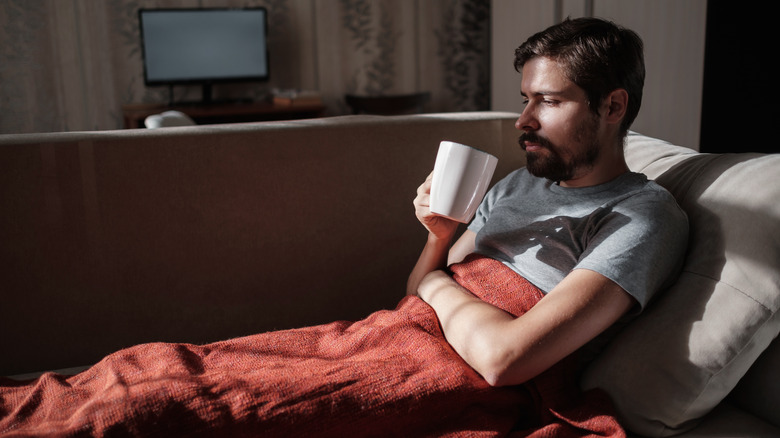You Might Have RSV If This Happens To You
Washing your hands often and maintaining good hygiene could be the key to staying healthy when it feels like everyone else is calling in sick and rubbing their noses raw with Kleenex. In fact, the Centers for Disease Control and Prevention (CDC) claims that washing your hands often is one of the best actions you take toward avoiding sickness and not spreading harmful germs to others.
Unfortunately, even those of us who keep the anti-bac close by and wash our hands religiously can also be infected with a virus or bacteria that leaves us lying on the sofa for days. On days when you're feeling seriously under the weather, it's easy to assume you have caught the common cold or perhaps the debilitating flu. However, you may want to make an appointment with your doctor so you can get the most accurate diagnosis, especially if you have been around someone with RSV.
Interseasonal Respiratory Syncytial Virus (RSV) is primarily spread when an infected person coughs or sneezes and releases droplets into the air. RSV is considered to be very contagious, and can also reach others through direct contact (via WebMD).
RSV can lead to more serious health conditions
According to the CDC, RSV is so common that nearly all children will have been infected with the virus at least once before they turn 2. Infants, children, and adults share similar symptoms when infected. You or your child might have RSV if you or they experience symptoms such as runny nose, coughing, wheezing, fever, and decreased appetite. The symptoms usually appear one after another instead of all at once. RSV typically goes away on its own after a few weeks, but it has no cure. Many choose to manage their symptoms like they would a common cold. If you find yourself getting worse and not better after a few weeks' time, call your doctor, as RSV can lead to more serious health problems, such as bronchiolitis and pneumonia.
If you suspect you might have been infected with the extremely contagious RSV, and have one or more of the symptoms listed above, consider setting up camp on your couch in your pajamas until you feel better. You'll be giving your body a break so it can focus more on healing. In addition, you'll be keeping others safe from feeling ill and having to set up camp on their couches as well.


